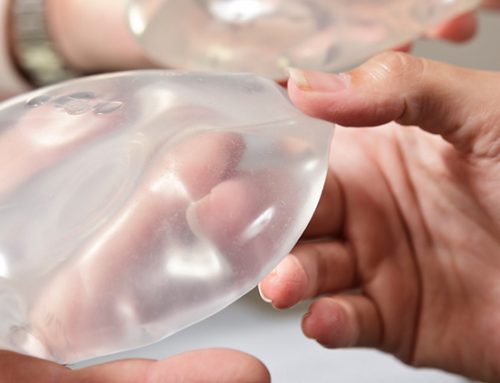The last time you got your mammogram results, did you notice a little note about your breast density? If you are like 40 percent of women, it might have said something like, “Your breasts are heterogeneously dense, which may obscure small masses and may put you at greater risk of developing breast cancer in the future.” Though this may sound a bit scary, it’s actually a normal reading.
Normal breast density exists on a spectrum from not dense at all to extremely dense. Knowing this information is important; it helps women and their doctors decide which breast screening methods are best, and how often they should get them. According to the American Cancer Society, whether a woman has dense breasts or not, regular screenings (mammograms in particular) are still the best way to find cancer early.
Because of the relationship between breast density and cancer risk, it is now the law in many states that breast density information be conveyed to each woman who has a mammogram. You may have seen talk of this newer legislation on the news.
What this means is that more women than ever before know that breast density matters, and many can tell you just how dense their own breasts are. Knowing this has also left some women wondering if their breast density will affect their options when it comes to cosmetic breast surgery.
To help answer this question, it will help if we first explain what doctors mean when they talk about breast density.
Breast density is a radiologic (mammogram) finding that has nothing to do with how breasts look or feel from the outside. The classification of density has to do with the ratio of fat (not a dense tissue) to everything else that makes up the breast, including glandular and fibrous tissue. On a mammogram, the fat shows up dark and the other stuff shows up white. The more white seen on a mammogram, the more dense the breast classification. The breast density classifications that may be assigned are – from least dense to most dense – the following:
- Fatty
- Scattered Fibroglandular
- Heterogeneously Dense
- Extremely Dense
Only about 10 percent of women are categorized as having extremely dense breast tissue. You can learn more about these breast density types, and see images too, at the American Cancer Society.
Here at North Texas Plastic and Reconstructive Surgery, Dr. Slack performs a wide range of cosmetic breast procedures including breast implants, liposuction, breast lifts, and breast reductions. In some cases, he may perform a combination of one or more of these procedures, depending on the goals of the patient. Here is how breast density may come into play with each of these procedures:
Augmentation
Breast implants are placed underneath the breast tissue not within in. This means that the breast tissue itself, no matter how dense, sits on top of the implant and therefore has little bearing on whether a breast implant is possible.
Liposuction
Liposuction alone is sometimes an option for women who are looking for a mild reduction in breast size. It is possible that a woman with extremely dense breasts, which means they have a lower ratio of fat to other tissue, may have a limit as to how much fat can be successfully removed using this method.
Breast Reduction or Lift
A breast reduction or lift sometimes includes liposuction, and the limitation just mentioned may come in to play to some degree. However, because these procedures also include an open surgical component, the goal of the reduction usually isn’t limited by breast density.
Here is the big takeaway: None of these procedures are off limits to a woman simply because she has higher breast density.
There are many factors that will limit a person’s plastic surgery options, including poor health, weight instability, and a bad smoking habit, but breast density usually isn’t one of them. That said, every person who walks into our clinic has their own unique anatomical identity, and that includes breast density. Dr. Slack takes all of this (and more) into consideration when advising each patient and planning their surgery.
If you have more questions about breast density and which breast procedures might be right for you, call our office today and schedule a consultation with Dr. Slack.




